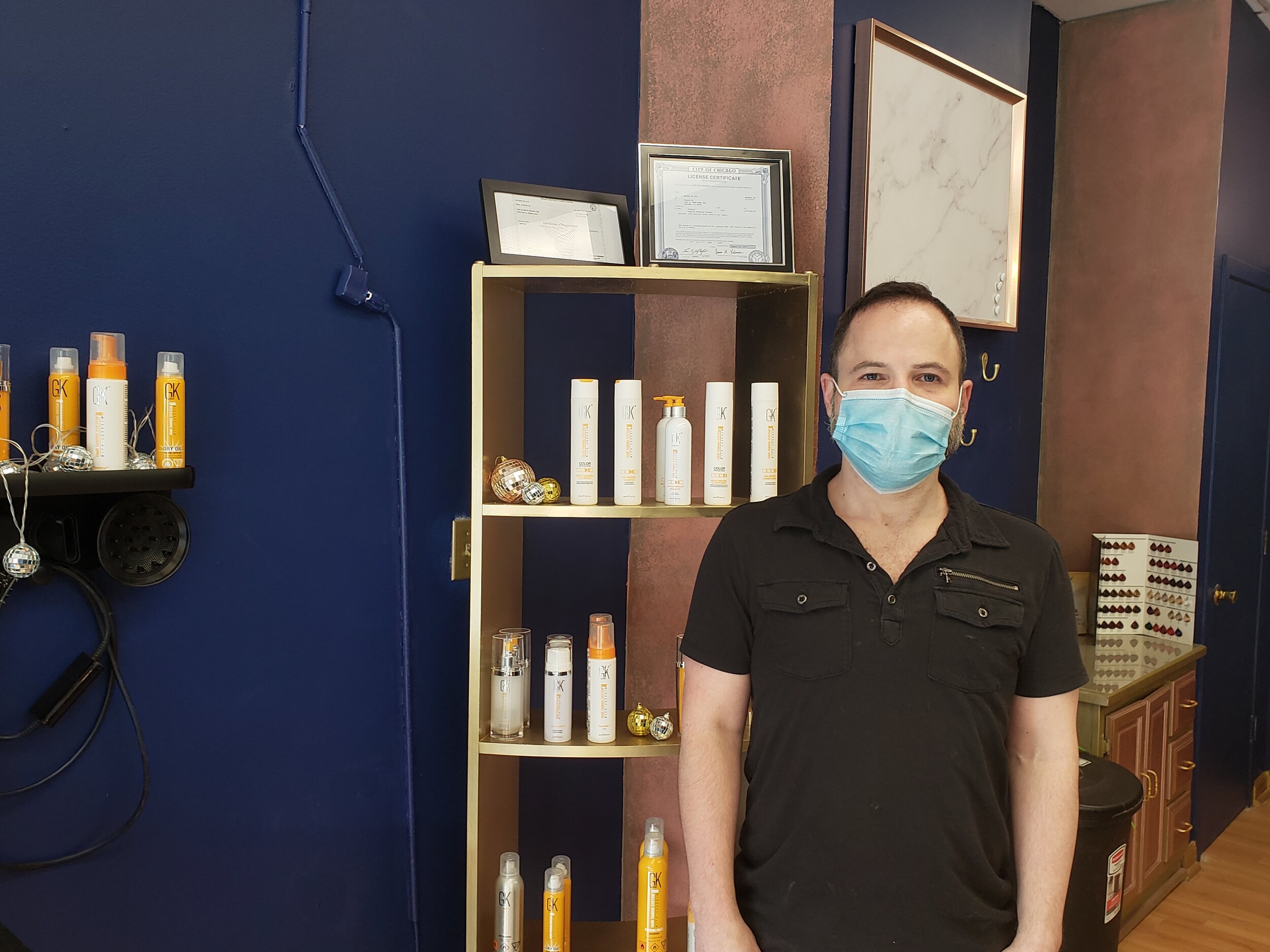Former employee buys and rebrands Edgewater salon after pandemic closure







A former Salon 64 employee went from jobless to giving the salon a fresh start after the former owner walked away during the pandemic.
Greg Nelson, 42, said he worked at Salon 64, 1064 W. Bryn Mawr Ave., in Edgewater since 2017. Shortly after the salon temporarily shut down because of the COVID-19 pandemic, former owner Charles Martin hung up his scissors for good, Nelson said. With encouragement from his clients, Nelson said he decided to buy the salon.
“I got unemployment and 10 weeks of backpay, which gave me a nice amount to remodel this place,” Nelson said. “I mean, the stars don’t align like that very often. When they do, you have to jump at the opportunity.”
Studio 64 opened Oct. 1 with just Nelson and a nail technician, Nelson said. The name is a nod to New York City’s famous Studio 54 disco club, Nelson said. He said he repainted the walls with metallic paints and vibrant colors and added disco balls to retail stands.
Nelson said he had help opening from 48th Ward Alderman Harry Osterman and his office staff. Ally Brisbin, the 48th Ward economic development and communications director, said small businesses such as Studio 64 are crucial to Edgewater’s identity.
“When we communicate about new businesses opening, it’s reassuring to us, and it’s against the common themes we’re hearing in the media,” Brisbin said. “It shows an entrepreneurial spirit to see past today and into the future.”
Nelson said he’s often told he’s “nuts” for opening a business during a pandemic. However, Edgewater marketing consultant Janice Means said most new business owners heard this sentiment from friends and family even before the pandemic.
“There’s a certain portion of the population that views having a full-time job and getting paid by somebody else as better than working for yourself, and that’s not necessarily true,” Means said. “No matter what you do, there’s a risk.”
Nelson said he anticipates struggling to get new business the first few months after opening. However, he said he believes the smaller size of his salon compared to neighboring salons will draw in business both during and after the pandemic.
“There’s a lot of places gone,” Nelson said. “Where are those people going to go? I also think it eases people that we’re smaller. You don’t have all those people in here, and it really is a more personal salon experience.”
###
Originally written for Medill coursework on Oct. 27, 2020.